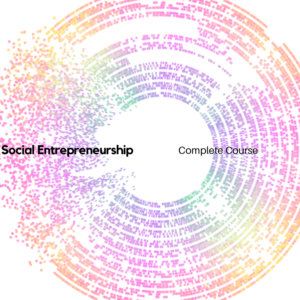Course: Social Entrepreneurship 1-0-1 – From Idea to Social Entrepreneurship Practice
ден30,750.00
SUMMARY
Find out more below ↓
Description
Course description
The course provides students with an orientation in this developing landscape as well as knowledge and skills to develop an idea and to realize it in practice. This course would guide the students from ideation phase all through the realization phase. The course is open to persons from various backgrounds seeking to develop skills in idea development, business development, leadership and organization and achieving social impact in the society.
The course is divided into four modules: Development of an idea, development of a business model, development of a financial plan, and development of an action plan. Module 1, Development of an idea, covers the following topics: Upon completion of this course, participants will be able to: Teaching methods include lectures, field trips, guest lectures, seminars and casework. Depending on the course level, literature in the form of contemporary articles for specific course occasions will be added, as well as other literature in consultation with the course coordinator. Example: Each module in the course will be evaluated separately upon completion. This provides periodic feedback on course development. The course as a whole will also be evaluated upon completion. A summary of results will be kept in the Academy’s archive.
Module 2, Development of a business model, covers the following topics:
Module 3, Development of a financial plan, covers the following topics:
Module 4, Development of an action plan, covers the following topics:
Scenario
Hours
Hours/ per day
Weeks
Lectures/ Seminars
Field trips/ Guest lectures
Group work
Individual work
Consultation
S1
50 h
1h/pd
10-12
20
10
5
10
5






Reviews
There are no reviews yet.